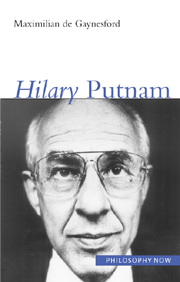3 - Analytic philosophy
from Part I - Context
Summary
In a way it is wrong, or merely academic, to talk of the influence of European thought on American thought, since the latter is continuous with the former. But in so far as the American intellectual conceived of the continuity as being an influence, it no doubt was exactly that, and, in being that, it was, in its time, useful.
Lionel Trilling, “The Situation of the American Intellectual at the Present Time” (2000: 286)This artful, calculated comment is the centrepiece of an essay written in 1952, the year after Hilary Putnam completed his doctoral work. The judgement expresses one, quite influential, point of view concerning American intellectual life at the time his career was launched.
The remark is worth pondering: Putnam's thinking developed within a context that was itself undergoing significant change. The immediate task is to relate his career to philosophy as he found it. And Trilling's comment neatly establishes the basic contours of that encounter, features whose implications and motive force have played themselves out in recurrent themes throughout Putnam's career.
Crisis
Consider first the cunning with which Trilling's judgement is delivered. He plays with the disquieting thought that the difference between something's being plain wrong and its being academic is of minimal significance (itself merely academic?) only to hurry us past for the bold claim: that American thought has up to now been simply continuous with European thought. And of what value has the European influence been?
- Type
- Chapter
- Information
- Hilary Putnam , pp. 17 - 30Publisher: Acumen PublishingPrint publication year: 2006



